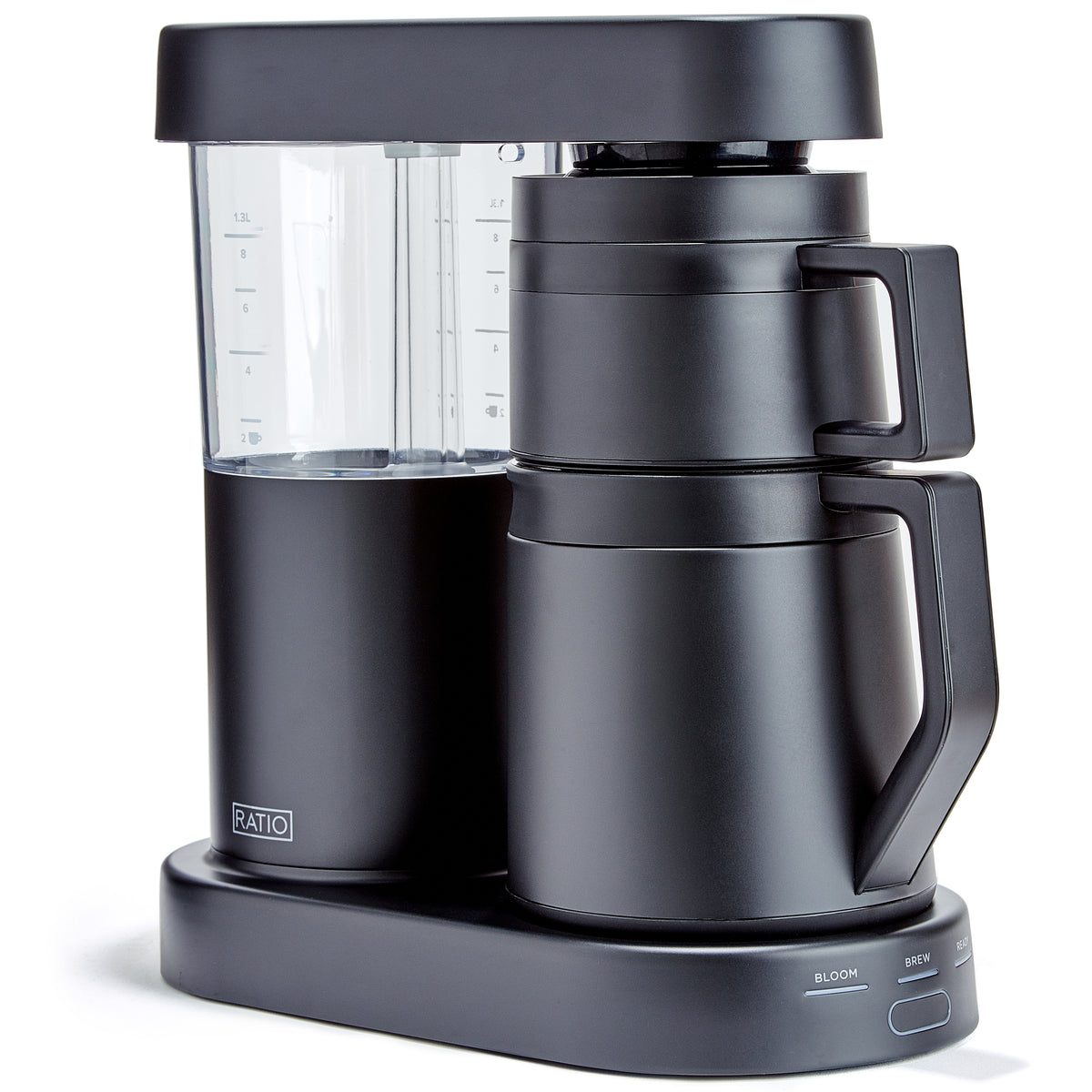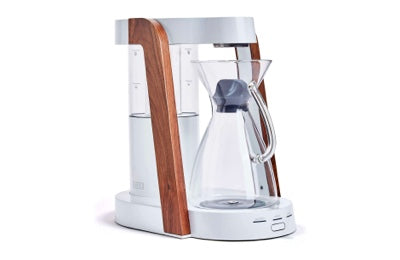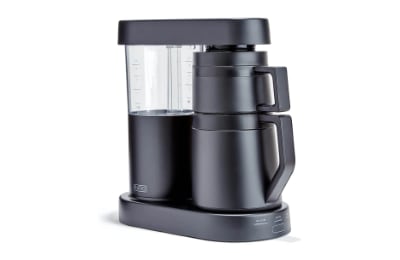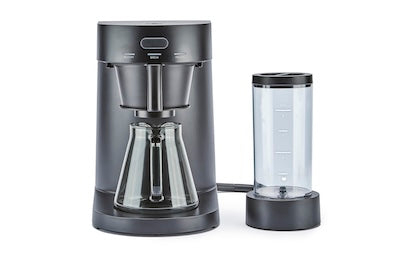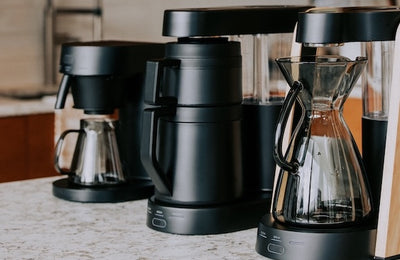The Quiet Revolution of Analog Brewing in a Smart Home Era
Key Takeaways
- Analog brewing offers a tactile experience that contrasts with smart technology.
- It fosters community through shared passion and knowledge exchange.
- Sustainable practices are integral to the analog brewing movement.
- Both analog and smart coffee machines have distinct benefits in modern coffee culture.
- The future of coffee brewing combines innovation with traditional methods.
In a world increasingly dominated by cutting-edge technology, where smart coffee machines reign supreme in many households, a quiet yet profound shift is occurring in how you might brew your morning cup of joe. The quiet revolution of analog brewing embraces a simpler, more tactile process, allowing you to reconnect with the very essence of coffee-making. Unlike automated brewing systems, analog methods invite you to partake in a more intimate and sensory-rich experience. Through the art of home brewing, you can savor the meticulous process of selecting beans, grinding them to perfection, and mindfully pouring water—all guided by your senses rather than digital precision. Analog brewing celebrates patience and craftsmanship, offering you a rhythmic dance of aromas and textures that modern technology sometimes overlooks. This subtle shift towards analog brewing in a high-tech era reflects a craving for simplicity and authenticity amidst the digital din.
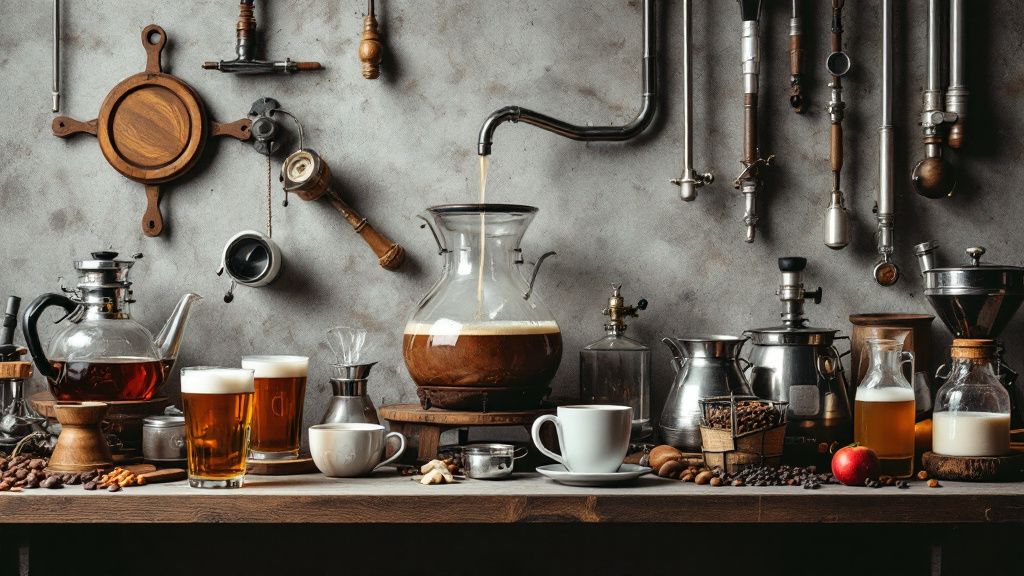
The Resurgence of Analog Brewing
In a digital age dominated by smart coffee machines, many people feel a sensory disconnect from their morning ritual. The automated, button-press brewing process often lacks the hands-on engagement that some enthusiasts crave. The resurgence of analog brewing serves as a solution to this desire for a more involved experience. With analog brewing, you engage directly with each step, selecting beans and adjusting grind sizes based on aroma and personal preference, ultimately making home brewing an artisanal endeavor. This hands-on approach not only enhances your connection to the coffee but also elevates the final cup's flavor profile.
One challenge faced by those yearning for a more tactile coffee experience is the complexity involved in mastering the craft of analog brewing. This may seem daunting to those accustomed to the convenience that smart coffee machines offer. However, the solution lies in adopting a step-by-step learning process. As you explore the nuances of water temperature, extraction time, and grind consistency, you gain a deeper appreciation for the process. Such a journey of discovery can transform daily coffee-making into a cherished ritual, enriching your mornings with a sense of achievement and fulfillment. Embracing analog brewing rekindles your relationship with coffee, providing an enriching contrast to the standard automation of everyday life.
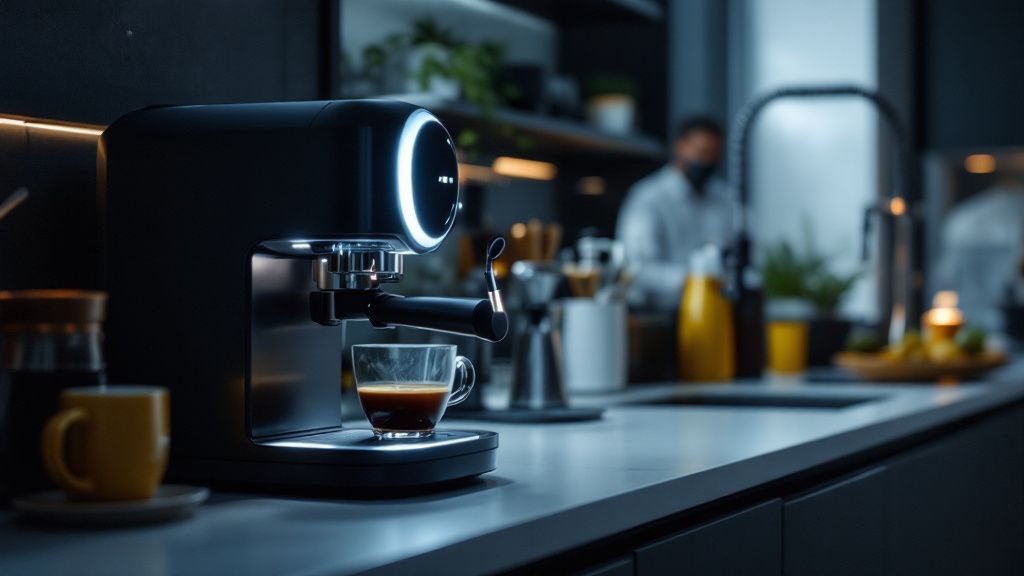
Smart Coffee Machines and Their Impact on Brewing
The allure of smart coffee machines lies in their ability to simplify your morning routine with just the touch of a button. These devices promise convenience and consistency, automatically adjusting brew settings to perfectly match your taste preferences every time. By integrating with other smart home technologies, they can even start brewing with a voice command or through a schedule set via smartphone apps, allowing seamless integration into your daily life.
For many, the predictability and efficiency of smart coffee machines symbolize the pinnacle of modern home brewing. However, while many believe that technology enhances every aspect of brewing, there’s a strong case for embracing the tactile experience offered by analog brewing. These manual methods invite you to engage more deeply with the process, allowing for personal adjustments and creative exploration that a smart machine might overlook.
The automation of smart machines, although precise, can inadvertently reduce your involvement in the art of brewing. They strip away the sensory components—the aroma of freshly ground beans, the sound of water pouring over grounds—that enthusiasts find deeply satisfying. Embracing analog brewing revives these elements, enabling you to craft a truly personalized coffee experience that smart machines can't replicate.
Nonetheless, smart coffee machines offer undeniable benefits in time-saving and ease of use, often fitting better into busy lifestyles. They cater to those who prioritize efficiency alongside quality, providing a reliable option for quick and consistent home brewing. Balancing technology and tradition can enhance your coffee journey, offering flexibility to enjoy both the convenience of automation and the richness of analog techniques.

The Community Aspect of Analog Brewing
Analog brewing fosters a sense of community that is distinct in its ability to connect you with fellow enthusiasts. This shared passion often translates into vibrant social interactions, whether it's exchanging tips on water temperature or discussing how different brewing methods impact flavor. The intimacy of these discussions creates a bond, rooted in a mutual appreciation for the craft and a willingness to learn from one another.
Engaging in analog brewing opens doors to events such as local coffee cuppings and brewing workshops, where you can hone skills and expand knowledge. These gatherings encourage dialogue and camaraderie among attendees, all united by a love for hands-on brewing. Such experiences offer invaluable opportunities to forge friendships with like-minded individuals who understand the intricacies of home brewing.
One unpopular opinion about the rise of analog brewing centers on the idea that it invades the domain traditionally reserved for baristas and cafes. Some argue that the communal aspect of brewing is best enjoyed in public settings rather than at home. However, home brewing fosters unique, personalized interactions and allows you to explore and develop individual brewing techniques, contributing to a broader community tapestry.
Participating in online forums and social media groups dedicated to analog brewing can also enhance your sense of belonging. Here, you find a wealth of shared knowledge, ranging from troubleshooting common brewing issues to discovering new methods like AeroPress or pour-over. These digital spaces nurture a global community where feedback and encouragement thrive.
Exploring analog brewing heightens your connection to not only the coffee itself but also the individuals who share your passion. The emphasis on personal and authentic experiences forms a community that values experimentation and creativity. This analog approach stands apart from the efficiency of smart coffee machines, bringing us back to shared human experiences centered around the art and joy of brewing.

Sustainability in Analog Brewing Practices
How does analog brewing impact environmental sustainability compared to its smart technology counterparts? Analog brewing significantly reduces energy consumption usually associated with smart coffee machines. By relying on manual methods, you minimize the use of electricity and focus on the art of making coffee through time-honored techniques. This conscious approach to brewing aligns with eco-friendly practices, choosing simplicity over digital dependency.
Engaging in analog brewing allows you to take control of waste management. Opting for reusable filters, like metal or cloth, eliminates the need for single-use paper alternatives. Additionally, coffee grounds become an eco-warrior’s ally when you repurpose them as compost or garden mulch, feeding the soil instead of cluttering landfills. These practices reinforce your commitment to a sustainable lifestyle within your brewing routine.
The sourcing of coffee beans becomes an important consideration in sustainable analog brewing practices. You have the opportunity to support local roasters or fair-trade varieties that emphasize ethical farming practices. By investing in responsibly sourced beans, you contribute to a positive cycle that supports farmers and reduces the carbon footprint associated with long-distance bean transportation.
Analog brewing practices also extend to the equipment you choose. By investing in durable, high-quality gear, you ensure longevity and reduce the need for frequent replacements. This minimizes the environmental cost of production and disposal linked with cheaper, machine-based options that tend to have shorter lifespans.
Sustainability through analog brewing offers you a holistic approach to a cleaner, greener coffee culture, balancing ecological awareness with the pleasure of crafting your perfect cup. It invites you to reflect on the resources you consume and the choices you make daily, steering you towards a more mindful and eco-conscious lifestyle.
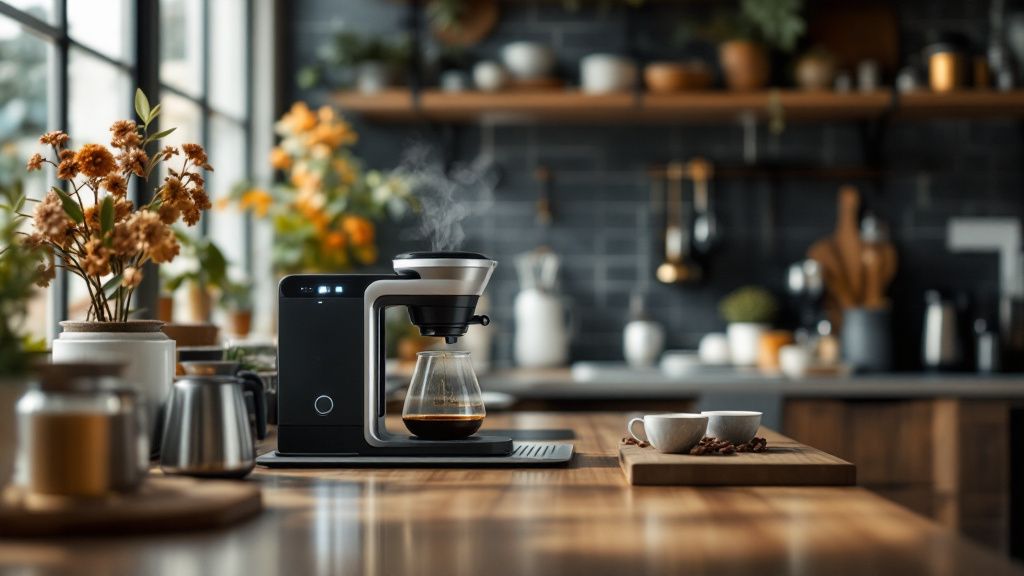
The Future of Brewing in Coffee Culture
As coffee culture continues to evolve, the future of brewing will likely be shaped by both innovation and tradition. Modern enthusiasts are exploring new methods that balance the convenience of smart technology with the tactile satisfaction of analog brewing. This dual approach caters to diverse preferences, providing a more personalized coffee experience tailored to individual lifestyles and values.
Comparing smart coffee machines to analog methods, it's evident that both play distinct roles in coffee culture. Smart machines offer efficiency and ease that suit fast-paced environments but can miss the depth of craftsmanship found in analog brewing. The future will likely see these methods coexist, allowing you to indulge in technology when needed or retreat to the hands-on satisfaction of brewing manually.
This evolving landscape suggests a rich tapestry of brewing techniques that cater to varied tastes and traditions. As you navigate this blend of innovation and craft, you gain the opportunity to redefine your coffee experience. Such growth reflects coffee culture's adaptive nature, embracing both technological advances and the timeless appreciation for artisan techniques that honor the essence of home brewing.
Frequently Asked Questions
What is analog brewing?
Analog brewing is a manual coffee-making process that relies on traditional techniques, focusing on hands-on involvement and sensory engagement.
How is analog brewing different from using smart coffee machines?
Analog brewing emphasizes manual control and craftsmanship, while smart coffee machines offer automated convenience and consistency.
Can analog brewing be sustainable?
Yes, analog brewing can be sustainable by using reusable filters, composting coffee grounds, and supporting ethically sourced beans.
Is analog brewing suitable for beginners?
Analog brewing can be suitable for beginners by starting with simple methods like pour-over or French press, allowing for gradual skill development.
Are smart coffee machines more efficient than analog methods?
Smart coffee machines are often more efficient in terms of speed and ease but may sacrifice the depth of personal involvement found in analog brewing.
 Ratio Eight
Ratio Eight
 Ratio Six
Ratio Six
 Ratio Four
Ratio Four
 Compare Machines
Compare Machines

